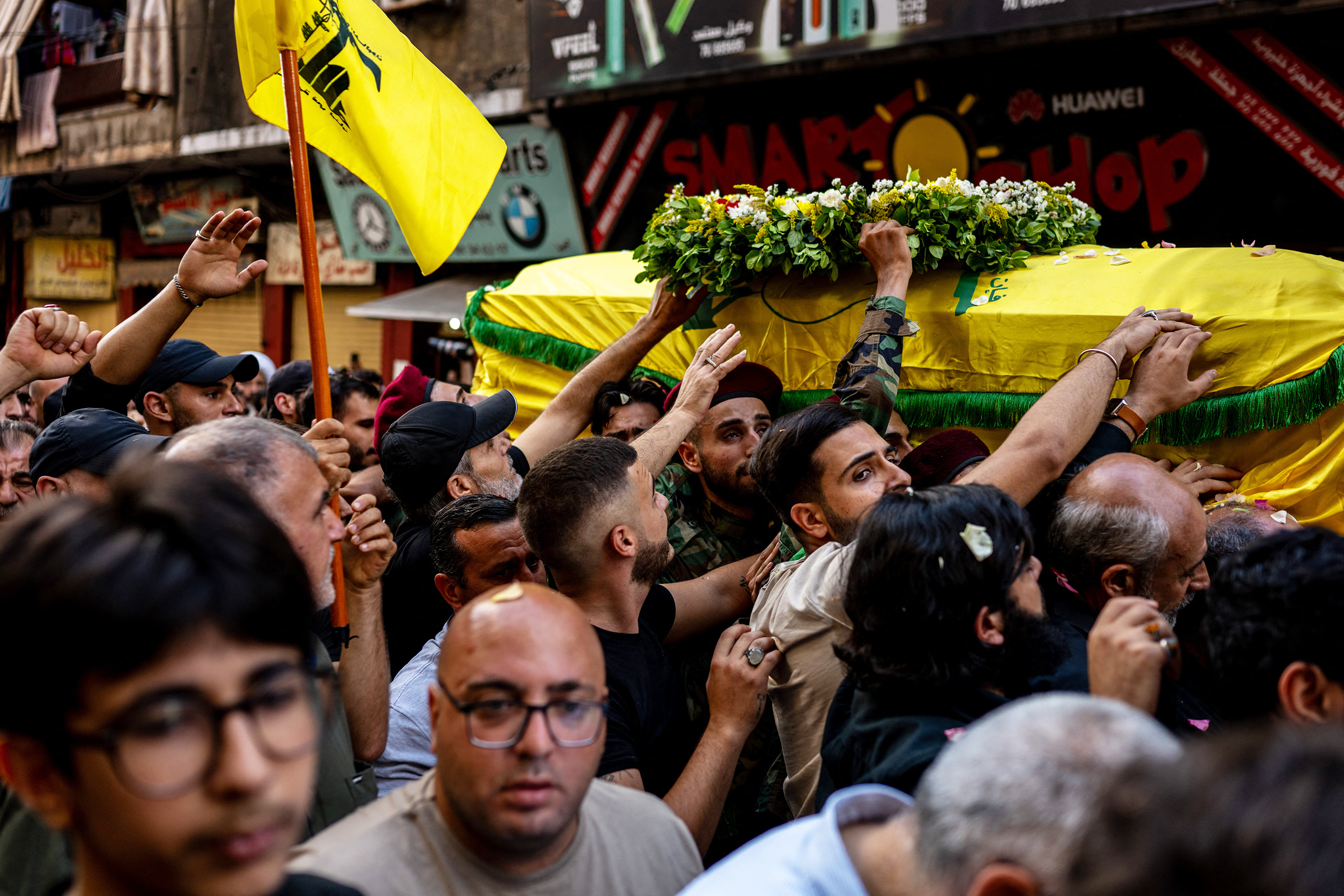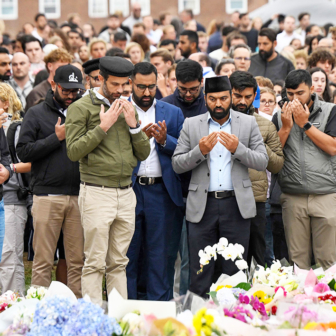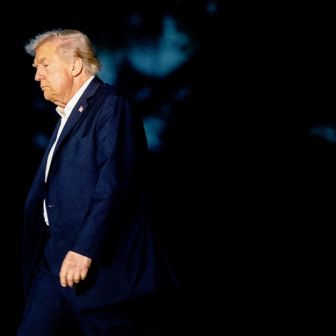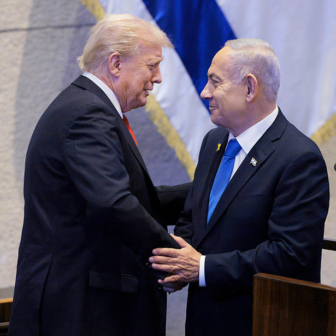That sound you can hear is a shoe dropping, or about to drop. In Beirut’s southern suburbs, stronghold of the Hezbollah Party of God, cold fury is likely to be the main sentiment among the militant group’s leadership. Israel’s audacious, indeed stunning, use of sophisticated technology to strike at Hezbollah’s heart will not go unanswered.
The remote-controlled explosions in pagers and hand-held radios used by Hezbollah officials and fighters have exposed the organisation’s vulnerabilities in about the most humiliating way possible. Its leadership will be consumed by the question of what else and what next after a stunning series of security breaches over the past several months. These include the elimination of Hezbollah commanders and leaders of its ally, Hamas, in drone strikes and targeted assassinations.
Israel’s motivation is clear: it is striving to re-assert its policy of deterrence against its enemies. The longstanding strategy was badly shaken by the 7 October Hamas breakout from Gaza, which tore apart Israel’s confidence in its ability to ward off acts of terror. Its vulnerabilities were exposed, its deterrent capabilities called into question. An aura of invincibility was shaken.
Two questions will now be paramount in the minds of Hezbollah leaders. What steps are required to rally their legions in the face of a crippling strike at the organisation’s communications network, effectively its nerve centre? And what form retaliation should take?
Sheikh Hassan Nasrallah and his commanders are under enormous pressure. They can’t appear to be allowing Israel to get away with what is arguably the most destructive strike against the militant group since its formation in the wake of Israel’s invasion of Lebanon in 1982. In Arabic, the word for revenge is antiqam, which carries enormous weight in a region where restoring one’s honour passes down through generations. The generational Israel–Palestine conflict is defined by the blood of its martyrs in Palestinian antiqam mythology.
It’s not clear that Sheikh Nasrallah will subscribe to the notion that revenge is a dish best served cold, although his responses since the war began in Gaza have been carefully calibrated. He will be considering the extent to which Hezbollah will use its rocket arsenal to rain terror down on Israeli cities in the certain knowledge that Israel will respond with overwhelming force. He need look no further than the Gaza wasteland to apprise himself of the consequences of precipitate action.
On the other hand, a limp response would run the risk of failing to satisfy a desire for antiqam among the militant group’s legions, and would also diminish Hezbollah’s aura of invincibility in Lebanon.
Israel’s scarcely believable use of modern technology had two main motivations. As well as helping restore its deterrent capabilities, the explosions were aimed at easing pressure on Israel’s northern towns and settlements. Indeed, Benjamin Netanyahu’s war cabinet asserted the latter as a priority on the eve of the strikes against Hezbollah.
Whether Israel will follow up with an assault on Hezbollah’s ability to hold much of the country’s northern region hostage to its rocket arsenal remains to be seen. But the latest Middle East conflict has clearly entered a new and even more dangerous phase.
What is certain is that shoes will continue to drop. Short of an Israeli land invasion of Lebanon, as we’ve witnessed in the past, it is hard to see pressure on Israel’s northern settlements being alleviated. Would Netanyahu commit his country to another push across Lebanon’s borders, thus opening up a two-front war? Israel’s success on the ground in Lebanon over the years has been patchy, to say the least.
Its 1982 invasion to root out the Palestine Liberation Organisation from its strongholds in Beirut ended in the massacre of hundreds of Palestinians in the refugee camps of Sabra and Shatila by Israel’s Maronite militia allies. Its thirty-four-day incursion into Lebanon in 2006 failed to put a stop to Hezbollah’s threats to northern Israel.
In all of this, American nervousness is understandable. While US secretary of state Antony Blinken continues his desultory efforts to bring about a ceasefire in Gaza, the last thing Washington needs is an all-out conflagration between Israel and Lebanon. Other Middle East players could well be drawn into the conflict, and the limp ceasefire efforts in Gaza would undoubtedly be made more complex.
It’s little comfort to America that its Israeli ally is playing a high-stakes game in highly volatile circumstances. While Washington is seeking to calm the situation, Netanyahu is upping the ante.
In an election year, with a shaky administration anxious to avoid being seen to exert undue pressure on an ally, ruthless political operators like Israel’s prime minister will pursue their own agendas. Netanyahu’s agenda is not separate from his own circumstances — his hold on power is unlikely to survive an end to conflict and a frank appraisal of the events that led to war — and nor is it separate from the corruption charges that hang over him.
Then there is Iran, and its proxies across the Middle East. Tehran won’t be content to be a bystander: not only has its principal Middle East ally been humiliated, its own officials have been harmed. The injury of its representative in Beirut in one of the pager explosions comes on top of the assassination in July of Hamas leader Ismail Haniyeh in a Tehran guest house, the result of a stunning breach of Iranian security. What Iran does now is no less important, and in some ways more important, than Hezbollah’s response, given its region-wide ramifications.
Conditioning prospects of a wider conflagration is the fact that neither Hezbollah’s nor Iran’s interest are served by a confrontation that spirals out of control. Nor, of course, are the interests of the United States and its allies. In the end, the question will be whether a Hezbollah response can be contained, and whether Iran itself will elect to avoid wider conflict. •




